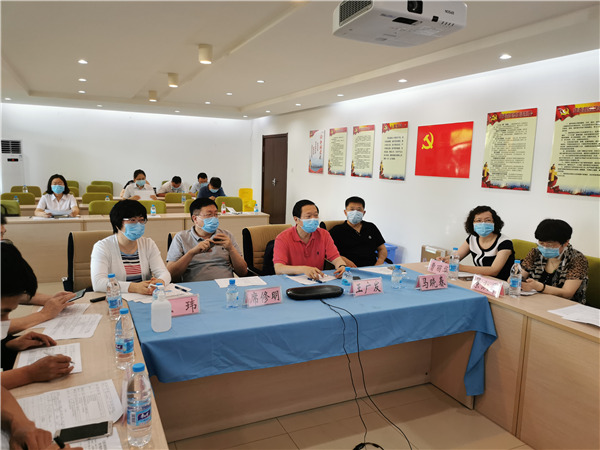Experiential learning


Tech pioneer
Wang graduated from Beijing Medical University in 1987. He chose to become a respiratory physician after being deeply affected by his role in helping to save the life of a seriously ill patient during his internship.
He says among all professions, doctors are able to realize the value of their work when they help a patient who enters the hospital on a gurney, to recover and walk out on their own feet.
To be a respiratory physician, Wang says that one needs to face many challenges, including a variety of common illnesses, complicated pathogenic mechanisms and many difficult miscellaneous diseases.
During his 33 years of experience in the field of pneumology, Wang has been a pioneer of new technology in the treatment of patients.
"As the development of medical disciplines bring more convenience to patients, doctors should continue to learn," Wang says. "It's a huge risk to use new technology for the first time. But for the patients, we should have the spirit to take up the challenge."
Wang says the use of new technology should not simply be to just to explore innovation, but should be based on the needs of the patient.
"When we are preparing an operation, we are not only thinking about how it could benefit the patient, but also what risks the patient might be facing," Wang says.
Ma Jing, a colleague of Wang, says he has a strong will and a sense of curiosity.
She says Wang is always exploring new technologies, techniques and ideas to help his patients, and he has an insight into the future trends of his field.
"The work is high-pressure, as the patients who come to him from across the country have a miscellany of difficult illnesses, and some are even in a life-threatening position when they arrive," Ma says.
Operating in the airways always carries a high risk, Ma notes, adding that a patient might already be suffering from airway stenosis-a narrowing trachea, commonly referred to as the windpipe-and the instrument required to enter the airway to perform the operation occupies vital space. One mistake might cause apnea.
According to Ma, if Wang is needed by a patient when he is off duty, as long as he is in Beijing, he will come to the hospital. "Even when you call him at 2 am, he will come, and he never complains."




































